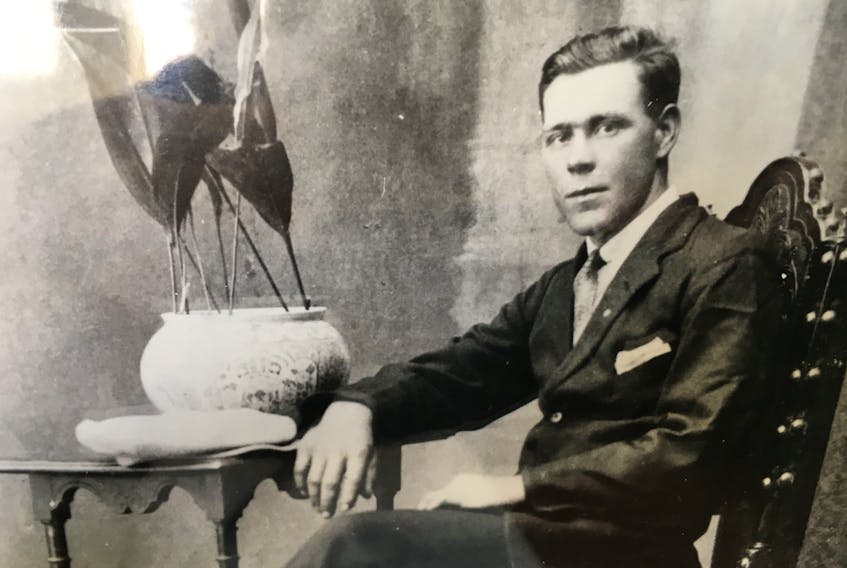“And whose plea will receive no answer? Whose cry is lost upon the wind?” — Ron Hynes “Atlantic Blue”
I came across my grandfather the other day.
He was next to three students from Curtis Academy who had won scholarships, a man with hearing impairment who had been struck by a train, and American cameraman and lecturer Alfred E. Freidmann, who was thinking of making a film — “Newfoundland’s Disappearing City” — about the domestic and foreign fishing ships that were creating a kind of city at night on the Grand Banks.
Their relationship was purely juxtapositional; all they shared was the same ink on page 3 of The Daily News of Monday, Nov. 14, 1955.
Freidmann was musing about the ships at sea: “When they are lit up at night they look like a great, sprawling city. And when the day breaks the ‘city’ disappears, leaving the reality of ships on the water.”
Except that sometimes, the ships disappear, too.
My grandfather, his captain and fellow crewmen, got top billing on that newspaper page. “Find Wreckage of Missing Coastal Vessel,” the headline said. “Stern Section Seen But No Trace of Crew. RCAF to Search for Survivors.”
Willoughby Riggs — my mother’s father — was lost 10 years before I even had a name.
What I knew about what happened to him, and the schooner “Mabel Dorothy,” was an amalgam of family lore, modern retellings, museum exhibits and memorial sites. I had never read the news coverage until now.
Willoughby Riggs — my mother’s father — was lost 10 years before I even had a name.
The only photo I have of him is a formal portrait taken in Porto, Portugal about 25 years before his death. He is about 21, wearing a dapper suit with patterned tie, seated on an ornately carved wooden chair. His eyes are dark, unwavering, looking straight at the photographer. There is the faintest hint of a smile playing on his lips. He looks like someone you could trust.
Perhaps that’s what attracted my grandmother. Together they had nine children, my mother the oldest, the youngest only an infant when my grandmother died of cancer just two months after the “Mabel Dorothy” disappeared. It had left Roddickton on Nov. 3, headed to North Sydney for a load of coal.
By Nov. 14, bits of wreckage were being sighted by other ships.
“Informed sources here are at a loss to know what happened to the schooner,” The Daily News reported.
All hands were gone: veteran Capt. John Ralph; my grandfather, the chief engineer; cook Thomas Bolt, mate Herbert Hollett, second engineer Garfield Lawrence, seamen Henry House and Thomas Jensen.
By Nov. 16, the story had lost its top spot on the newspaper’s third page.
“Little Hope for Survivors From Ill-Fated Schooner,” read that day’s news headline.
“At Grand Bank last night the whole community was in mourning as hope for survival of Captain Ralph and his crew, most of whom are residents of that town, waned.”
They had vanished into the sea; were committed to the deep. Never found.
I think of the Ocean Ranger and those men’s families. And I sometimes wonder if that permeating sense of emptiness and the nagging desire for answers carries on through generations of those lost at sea, encoded in the DNA like a lopsided smile, red hair or cleft chin.
What were the last thoughts of those men? Did they realize their fate? Did they cling hopefully to wreckage? Or did the end come as a sharp, sudden shock of cold rushing water, not enough time to breathe or think?
By Nov. 21, 1955, the world had moved on. There were other stories, minor and major.
The small article on page 3 that day was squeezed between the police blotter and notes from a fellowship club.
“Abandon Hope Mabel Dorothy” the headline said.
As if the families ever could.
Pam Frampton is The Telegram’s managing editor. Email [email protected]. Twitter: pam_frampton








